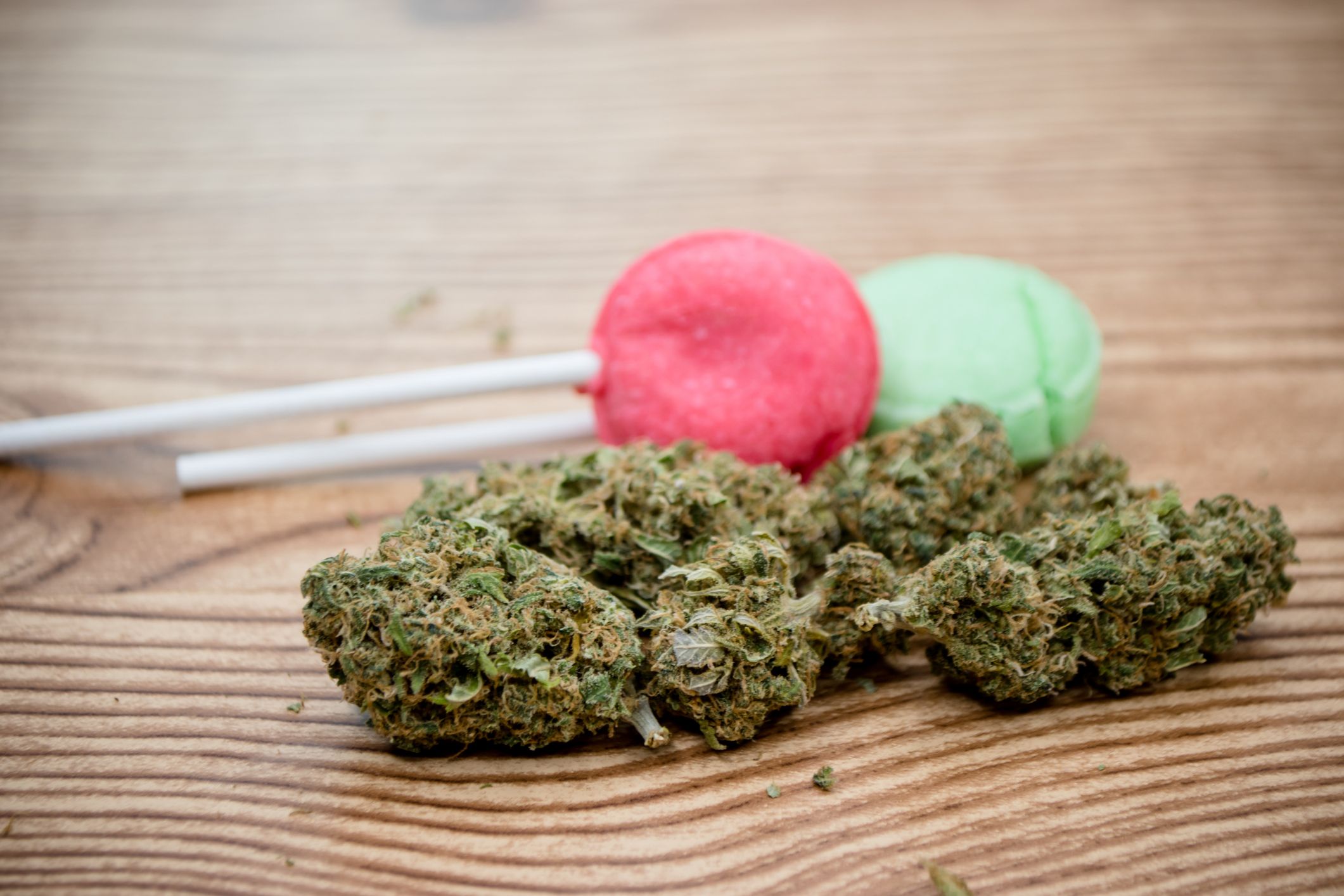
A man ate a lollipop and suffered a heart attack triggered by frightening hallucinations, physicians have revealed.
The unnamed man, 70, was taking medicines for coronary artery diseaseand his condition was stable. He suffered a heart attack after he ate around 70mg of THC, the psychoactive ingredient in cannabis. A friend had suggested it could help him sleep and ease pain for osteoarthritis. To put the does into perspective, the average joint contains around 7mg. Doses of dronabinol, a drug designed to ease nausea and poor appetite in Aids and cancer patients, start from around 2.5mg. According to the case study published in the Canadian Journal of Cardiology, the man was not aware that the effects of cannabis take a while to kick in if the drug is eaten, and can last longer.
As a young man, the patient had smoked cannabis. However, since then the average THC content of marijuana has spiked from 3 percent on average to 12 percent. Also, this was the first time he had tried an edible.
Around 30 minutes after eating the lollipop, the man was consumed by "fearful hallucinations," the authors wrote. He called a family member, and said he "felt like [he] was dying," according to the report. The man suffered "crushing chest pain," and started sweating, shaking and turning pale. His family rushed him to the nearest ER department. When his symptoms passed, he was discharged from hospital.
The authors of the paper believe the relatively large amount of THC he consumed triggered frightening visions and anxiety, sending his sympathetic nervous system into overdrive, and causing a spike in his heartbeat and blood pressure.
"The patient had not retried marijuana lollipops in the meantime and was suggested to abstain from consuming similar quantities in the future," the authors of the paper wrote.
As cannabis for recreational use has been legalized in nine U.S. states and Washington D.C. and in Canada, where the man lives, this warrants further investigation into how cannabis can affect those with heart conditions, the authors said.
Dr. Alexandra Saunders of Dalhousie University commented in a statement: "Marijuana can be a useful tool for many patients, especially for pain and nausea relief. At the same time, like all other medications, it does carry risk and side effects."
Dr. Robert S. Stevenson, of the Horizon Health Network department of cardiology, Canada, explained: "Most previous research on marijuana-induced myocardial ischemia focused mostly on younger patients and did not focus on its different formulations and potencies. As a result of widespread marijuana legalization, healthcare providers need to understand and manage cannabis use and its complications in older patients, particularly in those with cardiovascular disease."
Ian Hamilton of the Department of Health Sciences at the University of York, U.K., who was also not involved in the research, told Newsweek that the patient had a history of tobacco use, "making any causal conclusions about this health event difficult to make.
"It might be that he would have had this heart problem anyway and the fact he had used a potent form of cannabis was just a coincidence."
"This study adds to a growing number of studies suggesting we need to be cautious about the strength of cannabis people can access. We need to identify and warn particular high risk groups about these products such as naive users or those with pre-existing psychological or physical health problems."
However, he stated cannabis is generally a relatively safe drug, and only a minority of people will develop problems due to taking it.
Dr. Thierry Favrod-Coune of the Geneva University Hospital, who was also not involved in the work, told Newsweek the findings were limited by the fact the man was old, had health conditions and took such a "huge" and "unsafe dose." That means the results can't be generalized to younger and healthier people, he argued.
Last week, a separate study into the potential health impact of using cannabis indicated smoking the substance could boost a man's sperm count. The findings were published in the journal Human Reproduction.
However, Feiby Nassan, lead author of the study and a postdoctoral research fellow at Harvard Chan School, told Newsweek: "These findings do not mean that using marijuana will increase sperm counts. Secondly, the study is a great opportunity to spark interest on investigating the health effects of marijuana particularly with the backdrop of increasing legalization of recreational use in the U.S. coupled with a greater perception that marijuana poses no health risks."
This article has been updated with comment from Dr. Thierry Favrod-Coune.
Uncommon Knowledge
Newsweek is committed to challenging conventional wisdom and finding connections in the search for common ground.
Newsweek is committed to challenging conventional wisdom and finding connections in the search for common ground.
About the writer
Kashmira Gander is Deputy Science Editor at Newsweek. Her interests include health, gender, LGBTQIA+ issues, human rights, subcultures, music, and lifestyle. Her ... Read more
To read how Newsweek uses AI as a newsroom tool, Click here.








